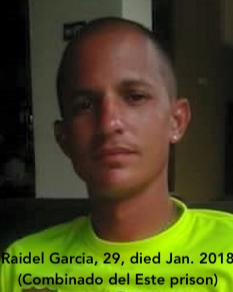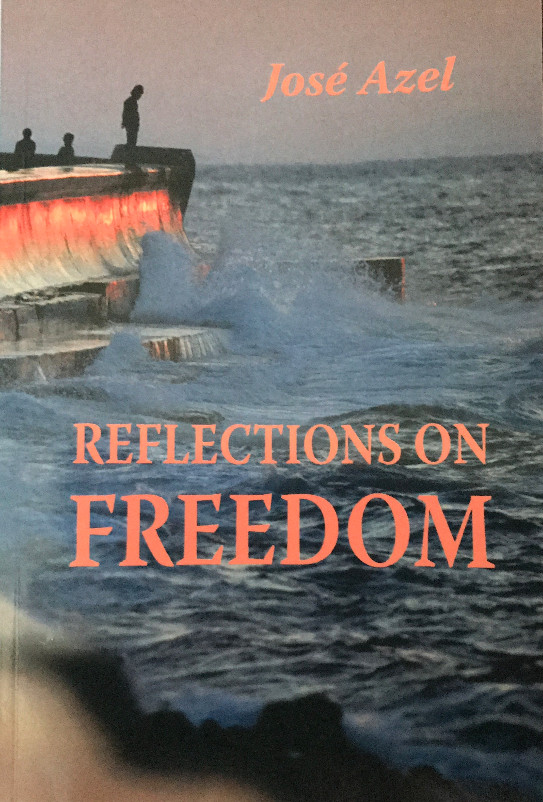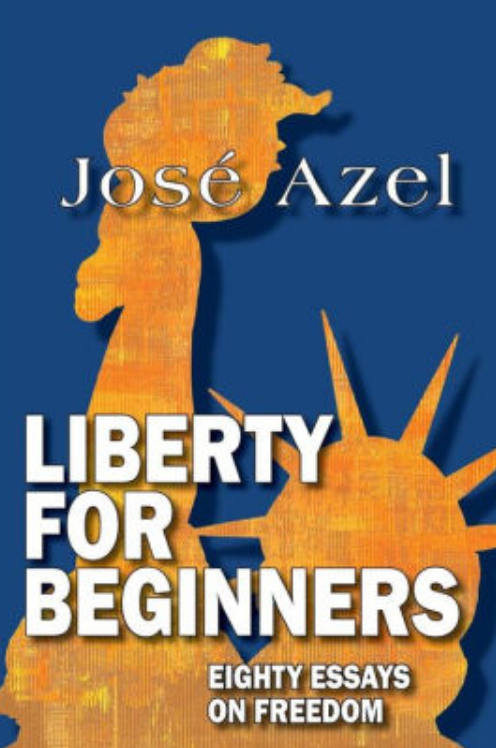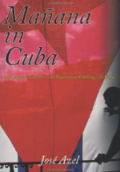Vea abajo la versión en español.
Cuba’s healthcare crisis deepens 8 years after mass manslaughter at Mazorra
In January, we especially remember the victims of a tragedy that should have never happened. On January 11th and 12th 2010, more than two dozen patients died of hypothermia at Havana’s Psychiatric Hospital known as “Mazorra.” The weather had turned unseasonably cold, with temperatures dropping to around 40 degrees F (4.4 degrees C). The facility had many broken and missing windows and the 2,500 severely malnourished and barely-clothed patients had no blankets.
 After human rights’ defenders in Cuba alerted international public opinion, reporting close to 40 victims, the Ministry of Public Health issued a statement reporting 26 deaths and later declared that those responsible would be held accountable for the “failure to adopt timely measures to safeguard patients.” A security operative was put in place surrounding the hospital, its workers were instructed to stay silent, and no information was provided on the many patients hospitalized in critical condition. After human rights’ defenders in Cuba alerted international public opinion, reporting close to 40 victims, the Ministry of Public Health issued a statement reporting 26 deaths and later declared that those responsible would be held accountable for the “failure to adopt timely measures to safeguard patients.” A security operative was put in place surrounding the hospital, its workers were instructed to stay silent, and no information was provided on the many patients hospitalized in critical condition.

The photographs in this report were taken at the Havana morgue where the bodies were delivered, then smuggled out of Cuba. They illustrate the state of starvation and mistreatment of the victims and the disgraceful handling of the bodies. See photos at http://www.penultimosdias and https://profesorcastro.jimdo.com.
With public attention centered on the hospital, conditions considerably improved, at least for some time. Several administrators and workers at the hospital were sentenced to 6 to 14 years of prison in January 2011. Neighbors, however, reported that the patients had habitually begged for food in the streets surrounding the hospital and no government authority had cared to investigate. Administrators and workers had been stealing the food and supplies and abusing the patients.
 This case may be extreme only because it rarely gets so cold in Cuba and photos were smuggled out of the island. The sad truth is that many awful realities of healthcare in Cuba have long been hidden from the outer world thanks to the mammoth resources spent by Cuba’s giant apparatus for international influence and propaganda selling the illusion of Cuba’s “great, universal, and free” healthcare. This case may be extreme only because it rarely gets so cold in Cuba and photos were smuggled out of the island. The sad truth is that many awful realities of healthcare in Cuba have long been hidden from the outer world thanks to the mammoth resources spent by Cuba’s giant apparatus for international influence and propaganda selling the illusion of Cuba’s “great, universal, and free” healthcare.
Aside from the terrible conditions, individuals have long been punished with imprisonment at Mazorra and other psychiatric facilities for their political “offenses.” Daniel Lorente, who irrupted with a large U.S. flag in the 2017 May (Labor) Day Parade in Havana, was imprisoned for months at Mazorra for his daring feat. In June 2018, the rapper Henry Laso, "El Encuyé," was held at Mazorra and other psychiatric facilities in Holguín and Sancti Spiritus for his songs critical of the regime and released months later only after going on a hunger strike. Cuba Archive´s co-founder, the late Armando M. Lago, Ph.D., together with Charles J. Brown, documented the systematic psychiatric torture of political prisoners in their 1991 publication “The Politics of Psychiatry in Revolutionary Cuba.”
 As most health workers in Cuba know, the Cuban government reports manipulated health statistics and maintains a limited number of showcase first-rate facilities; most of the international community falls for the packaged narrative and guided tours without any questions. In revolutionary Cuba, there has always been a huge difference between the precarious healthcare available to average Cubans and first-rate care for the ruling elite and hard-currency paying foreigners. For most Cubans, basic medications or medical equipment and supplies are altogether lacking. Facilities are dilapidated, many literally crumbling, hygiene is severely lacking, even water is often unavailable, and the food is inadequate. Patients have to bring their own towels, pillows, bed sheets, and blankets or risk having to sleep on soiled beds stained with blood and other body fluids. The problem is so blatant that photographs are forbidden in some of the hospitals. Any cursory search on YouTube.com or in google will produce examples. See these: Sanjeev Sabhlok, “The disastrous state of the Cuban health system” published Sep 17, 2018; Belén Marty, “Inside the Cuban Hospitals That Castro Doesn’t Want Tourists to See,” Oct 18, 2016; and Free Healthcare? As most health workers in Cuba know, the Cuban government reports manipulated health statistics and maintains a limited number of showcase first-rate facilities; most of the international community falls for the packaged narrative and guided tours without any questions. In revolutionary Cuba, there has always been a huge difference between the precarious healthcare available to average Cubans and first-rate care for the ruling elite and hard-currency paying foreigners. For most Cubans, basic medications or medical equipment and supplies are altogether lacking. Facilities are dilapidated, many literally crumbling, hygiene is severely lacking, even water is often unavailable, and the food is inadequate. Patients have to bring their own towels, pillows, bed sheets, and blankets or risk having to sleep on soiled beds stained with blood and other body fluids. The problem is so blatant that photographs are forbidden in some of the hospitals. Any cursory search on YouTube.com or in google will produce examples. See these: Sanjeev Sabhlok, “The disastrous state of the Cuban health system” published Sep 17, 2018; Belén Marty, “Inside the Cuban Hospitals That Castro Doesn’t Want Tourists to See,” Oct 18, 2016; and Free Healthcare? What's more, Cuba Archive has documented hundreds of deaths in Cuban prisons from medical conditions or denial of medical care. Prisoners —many young and healthy upon entering prison— often die for easily treatable conditions. Prison authorities are suspected of deliberately tampering with food and water to affect prisoners’ health and some have died in suspicious circumstances. These documented deaths are just the tip of the iceberg; the situation is known to be much worse but cannot be properly documented, as Cuba denies humanitarian agencies access to detention centers. Presently, suffering in the prisons is extreme and scores are believed to be dying annually. What's more, Cuba Archive has documented hundreds of deaths in Cuban prisons from medical conditions or denial of medical care. Prisoners —many young and healthy upon entering prison— often die for easily treatable conditions. Prison authorities are suspected of deliberately tampering with food and water to affect prisoners’ health and some have died in suspicious circumstances. These documented deaths are just the tip of the iceberg; the situation is known to be much worse but cannot be properly documented, as Cuba denies humanitarian agencies access to detention centers. Presently, suffering in the prisons is extreme and scores are believed to be dying annually.
To date, the horrible conditions in Venezuela's public health system with the adoption of the Cuban model are known to world public opinion, yet similarities with Cuba are not lacking. No doubt, the Maduro and Castro regimes have been counting on the international community to eventual forget or fall for the ruse, as it has with Cuba. Regardless, the cost in lives and human suffering is enormous in both countries.
One thing the Venezuelan regime seems to have not copied, at least yet, is Cuba's profit-driven healthcare model. Patients of any age requiring even the most basic medical procedure must “donate” blood “for humanitarian needs.” But the blood is used to produce products exported by the state for many millions of dollars annually. In another multimillion-dollar business, body parts from unknowing deceased donors are also sold as exports. What’s more, healthcare workers are exported in a modern slavery scheme that generates the Cuban government billions in hard currency (US$8 billion in 2017) and leaves most medical facilities in Cuba without doctors.
If you visit Cuba, help save lives by breaking the information blockade on “the real Cuba”
 If you visit Cuba, we urge you to independently walk to any neighborhood clinic or major hospital in any city, one that is not part of the “Potemkin-circuit” of showcase facilities (i.e. the vast majority of the country’s medical facilities are not). Make sure you break free from government handlers including public health officials. Do not get in the way of medical care, but discreetly take a look around; if you speak the language fluently and with a Cuban accent, ask pertinent questions to anyone around not in a position of authority. (To avoid trouble, do not speak if you don’t speak “Cuban Spanish.” ) Please send us a note on your impressions and any photographs you manage to take and let us know if we can share them (with credit to you or anonymously, as you prefer). Also, share your experience in social media, with your friends, newspaper, elected representatives, government authorities, international agencies and human rights organizations. You will be helping save lives! If you visit Cuba, we urge you to independently walk to any neighborhood clinic or major hospital in any city, one that is not part of the “Potemkin-circuit” of showcase facilities (i.e. the vast majority of the country’s medical facilities are not). Make sure you break free from government handlers including public health officials. Do not get in the way of medical care, but discreetly take a look around; if you speak the language fluently and with a Cuban accent, ask pertinent questions to anyone around not in a position of authority. (To avoid trouble, do not speak if you don’t speak “Cuban Spanish.” ) Please send us a note on your impressions and any photographs you manage to take and let us know if we can share them (with credit to you or anonymously, as you prefer). Also, share your experience in social media, with your friends, newspaper, elected representatives, government authorities, international agencies and human rights organizations. You will be helping save lives!
|
|
Free Society Project, Inc., 2018. ©All rights reserved.
www.CubaArchive.org
Reproduction and redistribution of this material are authorized as long as the source is cited.
We need your support to continue this work
Please visit our How to Help page to make a donation and learn how to help
disseminate this work. Also, share it with your contacts.
Cuba Archive’s Truth and Memory Project, an initiative of the Free Society Project,
documents loss of life and human exploitation resulting from the Cuban revolution
and promotes the understanding of transitional justice issues —truth, memory, and justice.
|
|
|












 After human rights’ defenders in Cuba alerted international public opinion, reporting close to 40 victims, the Ministry of Public Health issued a statement reporting 26 deaths and later declared that those responsible would be held accountable for the “failure to adopt timely measures to safeguard patients.” A security operative was put in place surrounding the hospital, its workers were instructed to stay silent, and no information was provided on the many patients hospitalized in critical condition.
After human rights’ defenders in Cuba alerted international public opinion, reporting close to 40 victims, the Ministry of Public Health issued a statement reporting 26 deaths and later declared that those responsible would be held accountable for the “failure to adopt timely measures to safeguard patients.” A security operative was put in place surrounding the hospital, its workers were instructed to stay silent, and no information was provided on the many patients hospitalized in critical condition.
 This case may be extreme only because it rarely gets so cold in Cuba and photos were smuggled out of the island. The sad truth is that many awful realities of healthcare in Cuba have long been hidden from the outer world thanks to the mammoth resources spent by Cuba’s giant apparatus for international influence and propaganda selling the illusion of Cuba’s “great, universal, and free” healthcare.
This case may be extreme only because it rarely gets so cold in Cuba and photos were smuggled out of the island. The sad truth is that many awful realities of healthcare in Cuba have long been hidden from the outer world thanks to the mammoth resources spent by Cuba’s giant apparatus for international influence and propaganda selling the illusion of Cuba’s “great, universal, and free” healthcare. As most health workers in Cuba know, the Cuban government reports manipulated health statistics and maintains a limited number of showcase first-rate facilities; most of the international community falls for the packaged narrative and guided tours without any questions. In revolutionary Cuba, there has always been a huge difference between the precarious healthcare available to average Cubans and first-rate care for the ruling elite and hard-currency paying foreigners. For most Cubans, basic medications or medical equipment and supplies are altogether lacking. Facilities are dilapidated, many literally crumbling, hygiene is severely lacking, even water is often unavailable, and the food is inadequate. Patients have to bring their own towels, pillows, bed sheets, and blankets or risk having to sleep on soiled beds stained with blood and other body fluids. The problem is so blatant that photographs are forbidden in some of the hospitals. Any cursory search on YouTube.com or in google will produce examples. See these: Sanjeev Sabhlok,
As most health workers in Cuba know, the Cuban government reports manipulated health statistics and maintains a limited number of showcase first-rate facilities; most of the international community falls for the packaged narrative and guided tours without any questions. In revolutionary Cuba, there has always been a huge difference between the precarious healthcare available to average Cubans and first-rate care for the ruling elite and hard-currency paying foreigners. For most Cubans, basic medications or medical equipment and supplies are altogether lacking. Facilities are dilapidated, many literally crumbling, hygiene is severely lacking, even water is often unavailable, and the food is inadequate. Patients have to bring their own towels, pillows, bed sheets, and blankets or risk having to sleep on soiled beds stained with blood and other body fluids. The problem is so blatant that photographs are forbidden in some of the hospitals. Any cursory search on YouTube.com or in google will produce examples. See these: Sanjeev Sabhlok,  What's more, Cuba Archive has documented hundreds of deaths in Cuban prisons from medical conditions or denial of medical care. Prisoners —many young and healthy upon entering prison— often die for easily treatable conditions. Prison authorities are suspected of deliberately tampering with food and water to affect prisoners’ health and some have died in suspicious circumstances. These documented deaths are just the tip of the iceberg; the situation is known to be much worse but cannot be properly documented, as Cuba denies humanitarian agencies access to detention centers. Presently, suffering in the prisons is extreme and scores are believed to be dying annually.
What's more, Cuba Archive has documented hundreds of deaths in Cuban prisons from medical conditions or denial of medical care. Prisoners —many young and healthy upon entering prison— often die for easily treatable conditions. Prison authorities are suspected of deliberately tampering with food and water to affect prisoners’ health and some have died in suspicious circumstances. These documented deaths are just the tip of the iceberg; the situation is known to be much worse but cannot be properly documented, as Cuba denies humanitarian agencies access to detention centers. Presently, suffering in the prisons is extreme and scores are believed to be dying annually. If you visit Cuba, we urge you to independently walk to any neighborhood clinic or major hospital in any city, one that is not part of the “Potemkin-circuit” of showcase facilities (i.e. the vast majority of the country’s medical facilities are not). Make sure you break free from government handlers including public health officials. Do not get in the way of medical care, but discreetly take a look around; if you speak the language fluently and with a Cuban accent, ask pertinent questions to anyone around not in a position of authority. (To avoid trouble, do not speak if you don’t speak “Cuban Spanish.” ) Please send us a note on your impressions and any photographs you manage to take and let us know if we can share them (with credit to you or anonymously, as you prefer). Also, share your experience in social media, with your friends, newspaper, elected representatives, government authorities, international agencies and human rights organizations. You will be helping save lives!
If you visit Cuba, we urge you to independently walk to any neighborhood clinic or major hospital in any city, one that is not part of the “Potemkin-circuit” of showcase facilities (i.e. the vast majority of the country’s medical facilities are not). Make sure you break free from government handlers including public health officials. Do not get in the way of medical care, but discreetly take a look around; if you speak the language fluently and with a Cuban accent, ask pertinent questions to anyone around not in a position of authority. (To avoid trouble, do not speak if you don’t speak “Cuban Spanish.” ) Please send us a note on your impressions and any photographs you manage to take and let us know if we can share them (with credit to you or anonymously, as you prefer). Also, share your experience in social media, with your friends, newspaper, elected representatives, government authorities, international agencies and human rights organizations. You will be helping save lives!







